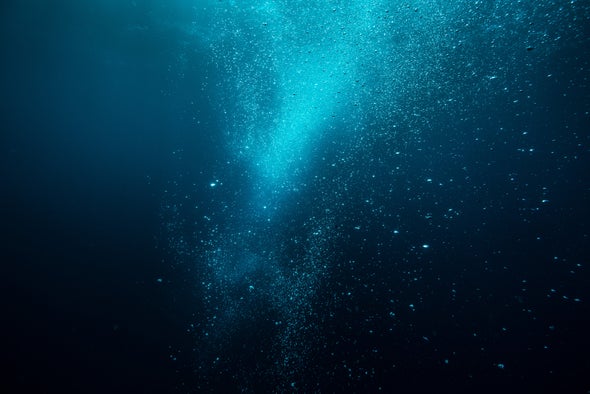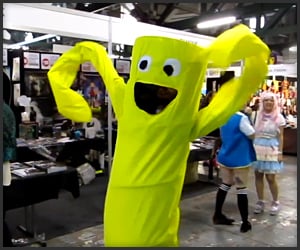I had stopped asking Zimi all the answers to my questions, and I was afraid I was going to get caught.
Everyone had a Zimi. Of course, like most, I believed that my Zimi and I had a special bond. The electronic voice in my head, answering any question I posed aloud. Of course after the many years of curiosity, I had come to trust my Zimi as "my own." Even though I knew logically that she was an identical program for my classmates and my teachers and my parents, still. My Zimi was mine. She was the one with my unique call-back log. My search history saved in her banks. We were linked by my nacient inquisitiveness. That's why now, as I kept silent, it felt like a betrayal.
It was the wonder that lured me in. Can you remember the last time you felt wonder? I couldn't. Everything in life was so set-out. So decided-upon. It was a all a planned oasis, a constructed, verdant atmosphere of knowing, of certainty. Everything was planned down to the microsecond, with aberrations being the merest blip of statistical interference. People were free to do anything, so the machines had gotten very good at guesstimating what the people were going to do.
What I wasn't doing was thinking my thoughts out loud. I was hiding them like a sneak. Like a militant. Like a spy. What was wrong with me? A lot, I guessed. But whatever it was wasn't strong enough to force my larynx. I wanted to keep my thoughts to myself as long as I could I wanted to keep wondering.
Wonder wasn't something propagated where I grew up. Why would it be? Anytime someone had a question, you simply asked it out loud and your Zimi would respond. Zimi had most answers, if not all. Usually with whatever answer she gave that didn't completely forestall curiosity -- that is to say, when Zimi's answers were imperfect -- the information she did give was enough to keep your mind reeling with the new possibilities. Not wonder -- possibilities. There's a distinction there I didn't understand before. Thinking about possibilities was like following a different path down the trail. It had mystery, but you could always follow it back to the path junction. Wonder was like sprinting into the sky. With the paths, with the possibilities, I always knew to put one foot in front of the other. I knew the path would end. I knew there were other paths all around me to follow. There just weren't spare neurons for following up on the missing specifics. I never thought to look up.

That's why this new feeling was such a thrill. It wasn't cheating, per say. In fact, if anything it was a willful extension of ignorance. Something to be abhorred. But I didn't care. I couldn't. When I kept the questions in my head instead of voicing them out loud, something incredible happened. I thought on them. I mulled over many awful, brazen concepts of how my questions could be answered. I pictured silly things. I tumbled quickly, steadily, down wrong paths. It was exhilarating. I'd only gotten to that feeling by stumbling over my own stupid tongue, but now...
Zimi wasn't programmed to be suspicious, but I'd been growing wary lately. She was used to a certain frequency of questions. I wasn't meeting my quota.
"Caleb?" she asked one day. "You have not been asking much. Do you have something you'd like to ask?"
I nearly jumped out of my skin, paper-thin drifting away from my body, and I pulled myself back to focus as a ghost focusing chi. I said, "I do not have any questions now, Zimi."
Zimi made her green-light noise and powered away. Zimi had not powered away entirely for a long time, and though I was afraid, my thoughts soon drifted in bliss, and I did not wonder about Zimi until I heard her power on.
When she came online, my brain felt pricked. I would have shuddered, had I not been so surprised and shocked. Like an icy thin needle piercing my brain. I woke up to it, and then my shoulders relaxed, and I was lying down, and I asked aloud, "Zimi? Why do we feel sensations that aren't physically touching us?"
And Zimi answered, "Well, Caleb: the brain is a wondrous thing. It feels very many sensations for a myriad of reasons that are not yet totally explained. But sometimes the brain's neurons fire in a particular way that sends a signal to the brain. That signal says, "pay attention!" Other times, there's something systemic that's running through the body. And the brain signals a specific feeling, like itchiness, to a specific part of your body, just so you start paying attention to it. There are a lot of reasons, you see, to feel something that you can't physically see affecting you."
I sighed and melted into my pillow, curled the comforter suddenly in my grasp up to my chin. "Thank you, Zimi." I said, murmured, swiftly falling into sleep. "You're welcome, Caleb," said the voice of Zimi, as though through and descending down a deepening well. "I'm always here."
---
When I awoke, I remembered missing something, but I could not recall what it was.
Perhaps it was juice? I went to the fridge and tugged against the magnetic weight of the door. I saw many half-empty bottles of tea and water. I saw two jugs of milk, one partially empty. I saw juice boxes on the top shelf, but I knew they were too sweet. I didn't want to pucker my lips so early. I ran a glass under the tap and drank thirstily before setting the cup on the counter. It rang out with a thin, quick sound.
"Zimi?" I asked. I heard the familiar, warm glow strong behind my left ear, hovering vaguely over my right. "Yes, Caleb?" Zimi said.
"I want to be on a mountain. Can you visualize me on a mountain?"
"Of course, Caleb," said Zimi. The world briefly became blurred bars that resolved into a snowy mountain cap. I stood on slasher-yellow skis on a few feet of snow. Before me was a steep lip. The wind carried itself whistling around me. I felt the snap of the cold on my nose, my chin. The rest of me was covered in wool or plastic, protected, but only a thin shell. I blinked a quick thank you to Zimi and skated to the lip, tipping over.
---
My tongue had to catch me again. For months I kept up as I always had, asking my questions of Zimi as soon as they formed. Stealing into worlds with her that fit my own psyche. It wasn't until my fat tongue caught in my mouth, kept me from voicing my thoughts quickly enough, that I caught the wonder again.
This time it was just as beautiful as before. A flitting, effervescent butterfly. The wonder caught hold of me, let me spin this way and that, turning in the currents of possibility, before Zimi's voice called me back to reality. "Caleb?" she asked, a hint of concern in her voice. "Is there anything you would like to know?"
I took several deep, panting breaths before I could answer. I felt as though I were stepping on wet clay. I did not want the ground to harden with my imprecise steps. "No, Zimi," I said. "I'm feeling tired. I would like to go take a nap."
Dreaming was another kind of wonder, I came to realize. Before I had learned to think in this new way, dreams were just another ephemeral thing. If I did not take care to remember them, they would flit away, quick as you please. Dreams, like errant thoughts, had no loyalty. Not like people. Not like Zimi, I thought guiltily. Why, I realized, why was I giving up this trusting relationship I'd relied upon all my life for some indifferent frivolity so meaningless as thinking? As empty wonder?
I tried to let the rational part of myself win, I really did. But that tittering flame at the base of my heart and the crown of my mind would not let go. They were the omni-present flame. And so began my earnest tricking of Zimi, god help me.
End of Part 1
















